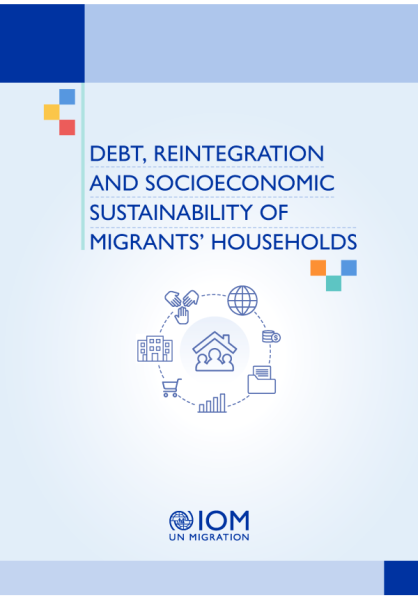Debt, Reintegration and Socioeconomic Sustainability of Migrants’ Households

This study determines four main market inefficiencies – namely information asymmetry, private formal and informal recruitment sector’s monopoly of power, limited access to the formal financial sector and limited access to justice – that are affecting the migration process for Bangladeshis and the ways in which these inefficiencies are all interrelated and feed into each other, thereby amplifying their respective negative impact on the overall migration process.
At the core of migrants’ indebtedness is the lack of information about their rights, the migration process, the available services and judicial redress. Not knowing about the official channels of migration pushes them to intermediaries who charge exorbitant fees. Thus, Bangladeshi migrants resort to taking out high-interest loans from moneylenders, resulting in indebtedness. When faced with fraud or improper job placement, migrants do not seek legal help, again due to lack of information on existing remedies.
The magnitude of migrants’ widespread indebtedness requires a major overhauling of the migration process at the origin of this unsustainable debt and proper implementation of the existing policy and laws specifically targeting the returnee migrants to resolve the existing structural failures affecting the migration process. These failures drain the resources of migrants who spend most of their remittances to repay the loans incurred to finance the migration costs, making it hard for Bangladeshi migrants and their families to invest the remittances instead in productive sectors in the local economy.
